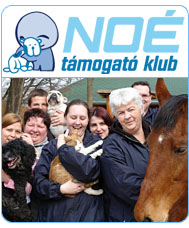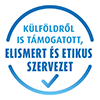The Rodent Rescue Project
2010.01.13.
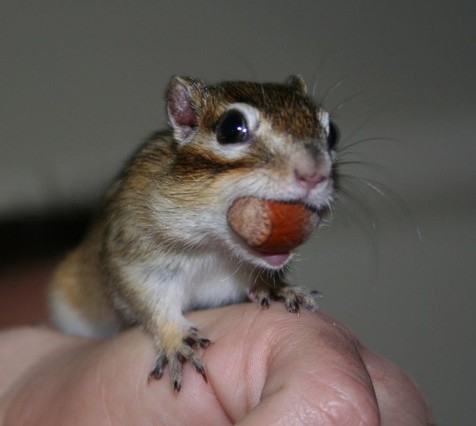 Rodents are in a grim situation in Hungary. You can buy them easily in pet shops for a low price, often with no or false information given about their needs. Except for some exotic species, these animals can be bought for a small amount, however the equipment needed for their keeping is quite expensive, and many profit-oriented breeders and pet shop owners treat them badly. Most rodents are tough little creatures, and there are breeders who cruelly abuse their abilities to survive: they are bred and kept in small boxes or terrariums lacking the minimal sanitary requirements, they are ill-fed, infected with parasites, and different age groups, males and females are often kept in the same, small cage. If that was not enough, most people even have biases against rodents, thinking that these are ugly, stinky vermins that spread diseases and have no place in the animal welfare act.
Rodents are in a grim situation in Hungary. You can buy them easily in pet shops for a low price, often with no or false information given about their needs. Except for some exotic species, these animals can be bought for a small amount, however the equipment needed for their keeping is quite expensive, and many profit-oriented breeders and pet shop owners treat them badly. Most rodents are tough little creatures, and there are breeders who cruelly abuse their abilities to survive: they are bred and kept in small boxes or terrariums lacking the minimal sanitary requirements, they are ill-fed, infected with parasites, and different age groups, males and females are often kept in the same, small cage. If that was not enough, most people even have biases against rodents, thinking that these are ugly, stinky vermins that spread diseases and have no place in the animal welfare act.
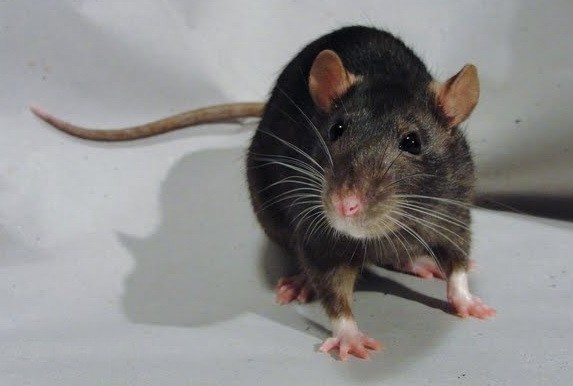 Rodents kept as pets depend on their owners just like cats and dogs do. However, the owners of rodents very often know little about how to provide the best environment for them. For many people, pet rodents are animals typically suitable for children, and many think they have no need for care and attention. There are many rodent owners who keep their pets under unsuitable conditions, with the best intentions but lacking the necessary knowledge; there are only a few who look up the information about their proper care, feeding and habitat. As rodents have a fast reproductive rate, and unwanted litters can be born if males and females are kept together, it is difficult even to estimate the number of rodents that are given away, abandoned or set free in parks. Finding new homes for unwanted rodents is a challenging task, and most of them have to face a hard fate. Animal shelters sometimes take rodents in, but most of the time they cannot house them as the equipment needed for their keeping (cages, litter, houses, toys) are expensive and they have no free space. Many people believe that they can give their unwanted rodents to the Zoo, but the Zoo is not an animal shelter, and rodents that end up here mostly finish their lives as a snake's supper. Reptile owners are always ready to take the rodents for free, and there are animal owners who are willing to doom their pets to such a fate. At the moment there is no organization in Hungary specialized in the rescue, healing and adoption of rodents.
Rodents kept as pets depend on their owners just like cats and dogs do. However, the owners of rodents very often know little about how to provide the best environment for them. For many people, pet rodents are animals typically suitable for children, and many think they have no need for care and attention. There are many rodent owners who keep their pets under unsuitable conditions, with the best intentions but lacking the necessary knowledge; there are only a few who look up the information about their proper care, feeding and habitat. As rodents have a fast reproductive rate, and unwanted litters can be born if males and females are kept together, it is difficult even to estimate the number of rodents that are given away, abandoned or set free in parks. Finding new homes for unwanted rodents is a challenging task, and most of them have to face a hard fate. Animal shelters sometimes take rodents in, but most of the time they cannot house them as the equipment needed for their keeping (cages, litter, houses, toys) are expensive and they have no free space. Many people believe that they can give their unwanted rodents to the Zoo, but the Zoo is not an animal shelter, and rodents that end up here mostly finish their lives as a snake's supper. Reptile owners are always ready to take the rodents for free, and there are animal owners who are willing to doom their pets to such a fate. At the moment there is no organization in Hungary specialized in the rescue, healing and adoption of rodents.
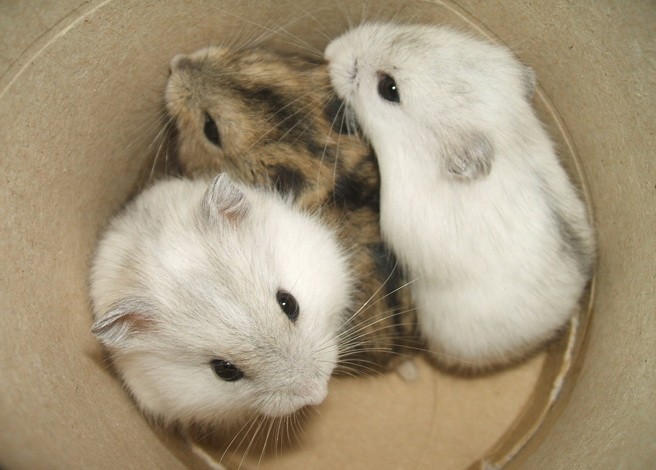 The Rodent Rescue Team of the Noah's Ark Animal Shelter started its work September 2009, and tries to meet this demand, following the example of rodent rescue organizations abroad. During the past few months it has become clear that a huge number of guinea pigs, chinchillas, rats, mice, gerbils and degus are waiting to be rescued, and animals that come under our care are often ill, and sometimes even pregnant. We are, however, only private persons, and our resources are limited. The team works with temporary adopters, that is, volunteers who house one or two of the animals, and regularly play with them to make them get used to the human touch, which is a much more ideal housing than the quarantine room of the shelter. We give animals for adoption after quarantine, antiparasitic treatment and (if needed) re-socialization. Just like in case of dogs and cats, the adopter has to sign an adoption contract in which he or she declares that the animal will receive the necessary care and medical treatment until the end of its life.
The Rodent Rescue Team of the Noah's Ark Animal Shelter started its work September 2009, and tries to meet this demand, following the example of rodent rescue organizations abroad. During the past few months it has become clear that a huge number of guinea pigs, chinchillas, rats, mice, gerbils and degus are waiting to be rescued, and animals that come under our care are often ill, and sometimes even pregnant. We are, however, only private persons, and our resources are limited. The team works with temporary adopters, that is, volunteers who house one or two of the animals, and regularly play with them to make them get used to the human touch, which is a much more ideal housing than the quarantine room of the shelter. We give animals for adoption after quarantine, antiparasitic treatment and (if needed) re-socialization. Just like in case of dogs and cats, the adopter has to sign an adoption contract in which he or she declares that the animal will receive the necessary care and medical treatment until the end of its life.
The rodent rescue team operates as a special project of the Noah's Ark Animal Shelter, so the main policy of the shelter is also our philosophy: all animals have a right to live, be it a sick, unsocialized, problematic creature or simply an ugly one. We do not put any animals to sleep, only those that are seriously injured or ill, suffer and cannot be cured. The animals that come under our care will never be given away to pet shops, laboratories or reptile owners, they can only be adopted by loving and responsible owners, as pets!
As the project started only recently, our capacity is limited. At the moment we are still looking for new temporary adopters, who would be willing to take care of one of our animals. The contribution of volunteers who cannot house any of our residents but have a car and could help us in their transportation would also be much appreciated (especially in the cold months of winter).
Projectleader: Kyra Lyublyanovics
Phone: 0036 70 / 293-5401 (18-22 p.m.)
e-mail: ragcsamento@gmail.com
Website: www.ragcsamentok.hu
The project has no separate bank account number, so if you would like to support our work, you can make your donation to the bank account of the animal shelter:
Bank account number: 11710002-20083777
In the note section, please write: Rágcsálómentés (rodent rescue). Thank you!
It is also possible to support us and our animals by virtually adopting them on the main webpage of the animal shelter (www.noeallatotthon.hu).
A Tetszik gomb eléréséhez sütik engedélyezése szükséges.
 Share
Share





 Magyar
Magyar
 Deutsch
Deutsch











